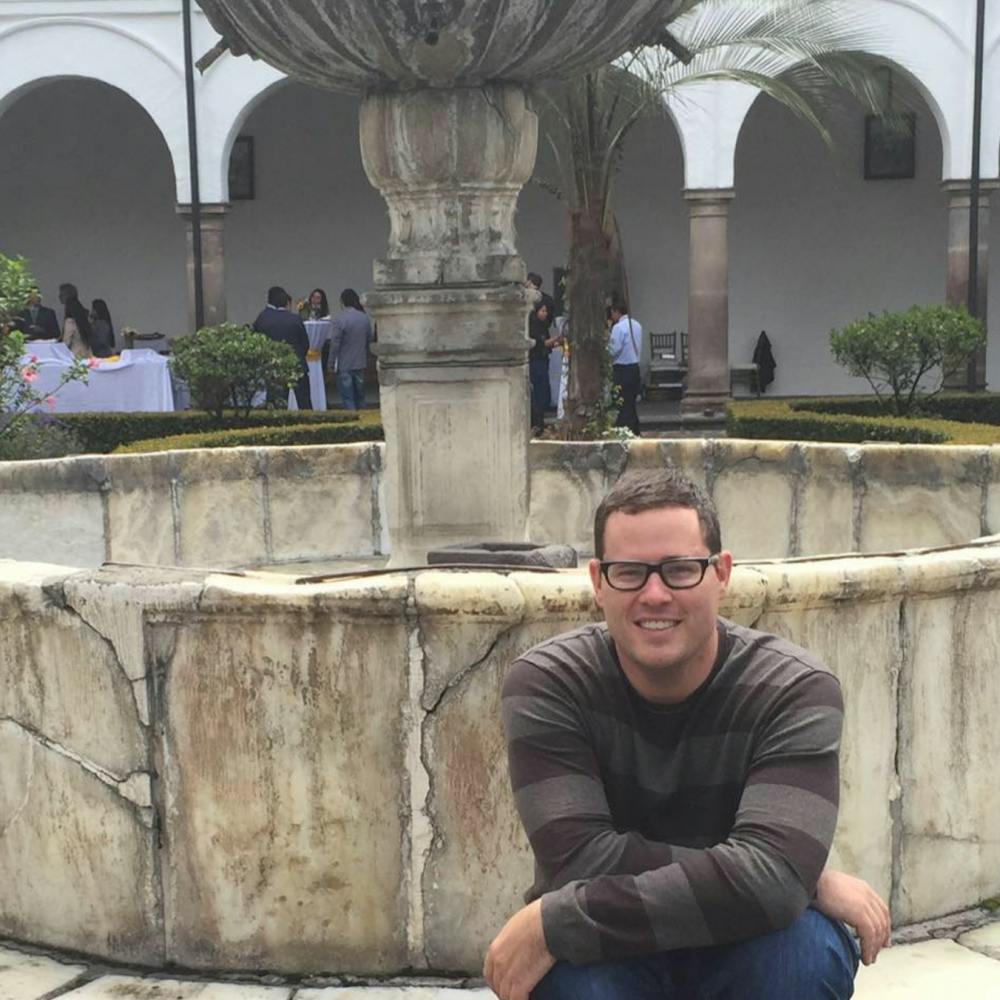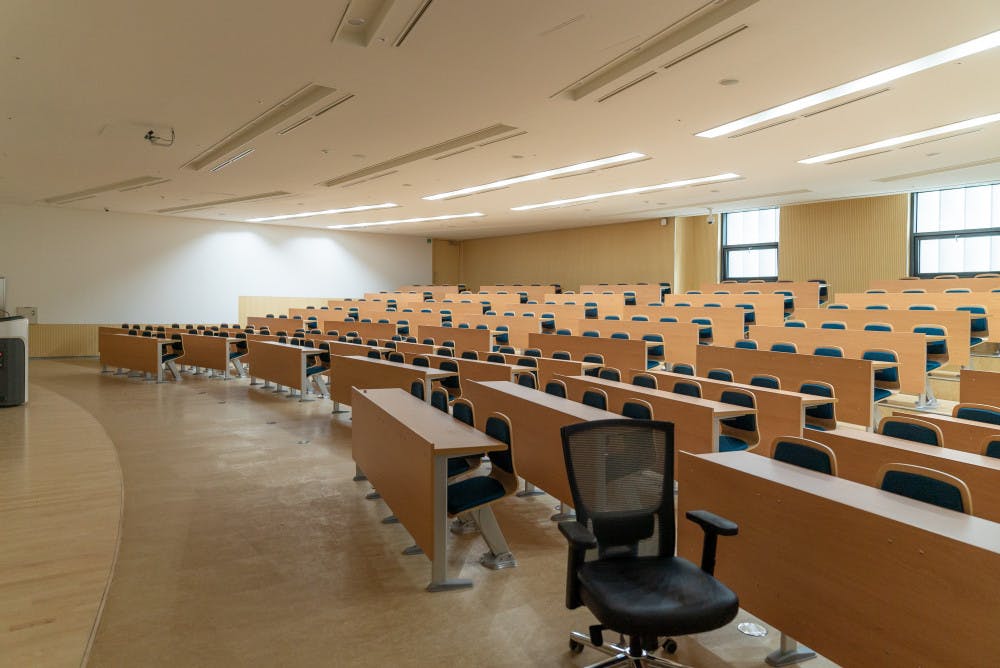Fear. Anxiety. Loneliness. These are just some of the emotions that might go through first-year students’ minds as they open the door to their first college class.
But they are not alone.
The Alligator interviewed three professors who teach general education courses at UF to get their advice on how to be successful in college and in life. The professors interviewed include: Macroeconomics professor David Knight, Discovering the Universe professor Elizabeth Lada and American Federal Government professor Suzanne Robbins.
How to survive the course
Macroeconomics

Knight
Knight’s macroeconomics class is an online hybrid format — meaning students can attend live lectures to ask questions, but assignments are completed on Canvas.
The class has students from almost every undergraduate major, Knight said. The annual enrollment is about 2,500 students.
For his class, students struggle when they aren’t actively learning, Knight said.
“When you look at who’s struggling, missing assignment deadlines and not turning things in it is a really common issue,” he said.
Another common problem causing students to struggle is not going to class and not intently watching lectures.
“Watching your lectures on double speed or watching while you're doing something else -- maybe making dinner — anything else is the same as going to class and not paying attention,” he said.
In order to excel in his class, one must take active steps to learn the material, Knight said. He suggests having set times to watch lectures and possibly a study buddy to keep one accountable on their progress.
American Federal Government
For American Federal Government, Robbins said going to class prepared to discuss readings and asking questions will help students excel.

Robbins
“Learning how to apply concepts and ideas across topics will place you near the top [in my class],” Robbins said.
Her class focuses on how the American government works, and she approaches each topic by reflecting on both historical and contemporary political challenges.
However, the curriculum doesn’t really change.
“The topics do not change — as the basic fundamentals of our constitution doesn’t change,” Robbins said.
Discovering the Universe

Lada
To Lada, asking questions helps students be successful in her Discovering the Universe class. Her class covers multiple topics of astronomy from how stars are born to the solar system and even galaxies.
She said communicating with professors isn’t just beneficial for her class but as a whole.
“I think one of the things is to really forge a better relationship with professors,” Lada said. “To make sure you’re understanding everything, asking questions and getting help when you need it.”
Achieving Success
All the interviewed professors defined what success is to them and how to achieve it.
To Lada, success in general is finding your passion.
“I think success for me is: you're learning something and you're broadening your perspective,” she said. “You're finding things you're interested in and passionate to learn about.”
But for Knight, success is different to each person.
“To me, success is trying to identify and understand what your goals are and moving toward them,” he said.
To do well in his class, one has to put forth the work, Knight said.
And for Robbins, success is different from a worldly perspective to a classroom setting. For the classroom, success is the desire to learn more and be constantly questioning. But outside, it’s physical and mental well-being, she said.
“College isn’t the endgame,” Robbins said. “It sets you up to always want to learn more.”
Last Words
Overall, the consensus among the professors is first-year students tend to struggle with time management.
To fix this, Robbins suggested keeping a calendar and prioritizing activities.
Breaking up large projects into small tasks and accomplishing them over time is better than doing it all at once, he said.
“Every night, make a list of the three to six most important things you need to accomplish the next day, and prioritize them,” she said. “Start with the most important one first and finish it before moving to the next item.”
As for Knight, he believes first-year students struggle with independence.
“I think that's a challenge for a lot of people who are 18 years old, is going from a world in which your parents advocate for you to one in which you have to advocate for yourself,” he said.
To overcome this, Knight suggested thinking of ways to rely on oneself to fix problems instead of others. Also, he said students should always work hard even though they aren’t sure what they are working toward.
“The biggest opportunities that will come to you, especially professionally, are most often things you have no idea of or are even on your radar,” he said.
Knight said he believes if one works hard and is nice, things will usually work out.
Last, Lada’s advice to first-year students is to be open-minded and explore one’s environment.
“Don’t be afraid to make mistakes or be open to new opportunities — challenge yourself,” she said. “This is a really good time in your life to do this.”






